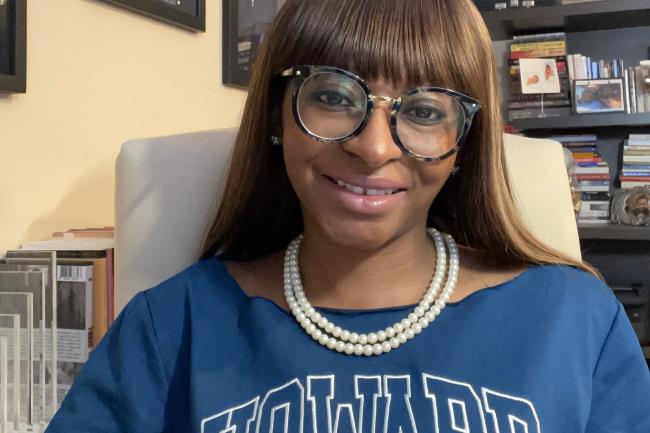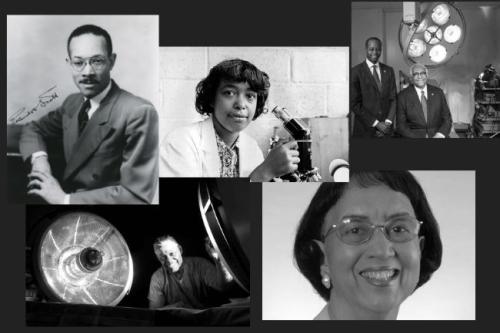Howard alumna Adana Llanos, Ph.D., MPH, works to eliminate disparities at a microscopic and macroscopic level
Dr. Adana Llanos (B.S. ’04, Ph.D. ’09) is passionate about inequities in cancer as well as in the science profession. A biology major at Howard with strong writing skills, Dr. Llanos recalls being encouraged by her professors to switch from pre-med to research instead. Today, she is an assistant professor in the department of biostatistics and epidemiology at Rutgers School of Public Health and was recently named a 2021 Emerging Scholar by the publication Diverse: Issues in Higher Education. During the course of her career, she noted the limited representation of Black participants in biomedical research and among her colleagues – two areas she hopes will change.
Q: Explain what you do as a molecular epidemiologist.
A: My research focuses on biological and molecular factors that contribute to disparities and in cancer, particularly cancers for which we observe disproportionately high mortality rates among racial/ethnic minorities and medically underserved groups.
Much of my work has focused on biomarkers in the tumor microenvironment, but I have been pivoting a bit to examine how social determinants and biological factors interact as a means to better understand the causes of inequities in cancer outcomes. I have an interest in studying these issues in populations of African ancestry given the increasing burden in these groups, including in the Caribbean.
Q: What is something that’s surprised you during your research?
A: The importance of considering both biological and social factors (and the combination of them) to understanding disparities. While my Ph.D. is in genetics, I have found that for the most part genetics, and more broadly biology, does not explain why some groups have worse cancer outcomes, but rather how the downstream effects of social determinants of health, such as structural racism, impact disease risk and outcomes.
Q: Why academia?
A: I ask myself that question a lot! I really love the research I’m doing and having the autonomy to choose my research focus. My interactions with students, especially students from groups that are underrepresented in STEM, has also kept me in academia. I think about the possibility of them never seeing faculty and scientists that look like them and how that might impact their desire to pursue these types of careers.
Representation matters.
Q: We’d like to think each of our students will contribute to Black history in their own way. What do you think your contribution will be?
A: I hope that my research contributes to closing the disparity gap for breast cancer mortality between Black and white women. I also hope to continue the legacy of Black excellence that was instilled in me at Howard and to make Black history as a role model, inspiring the future generation of leaders in STEM.





